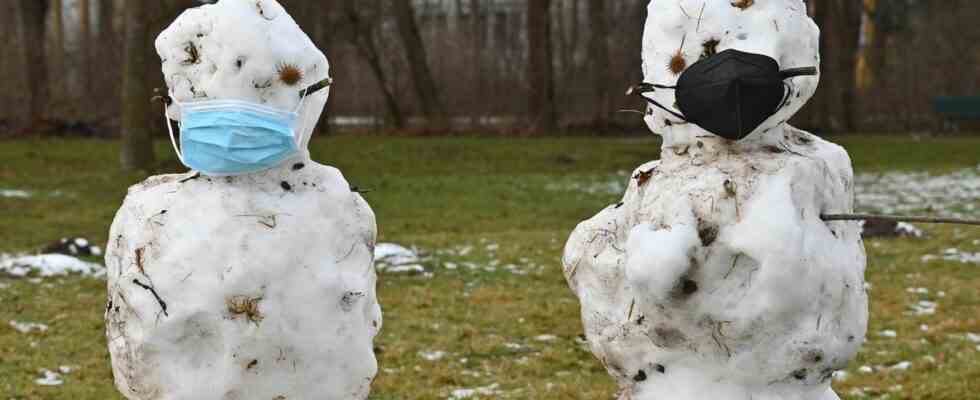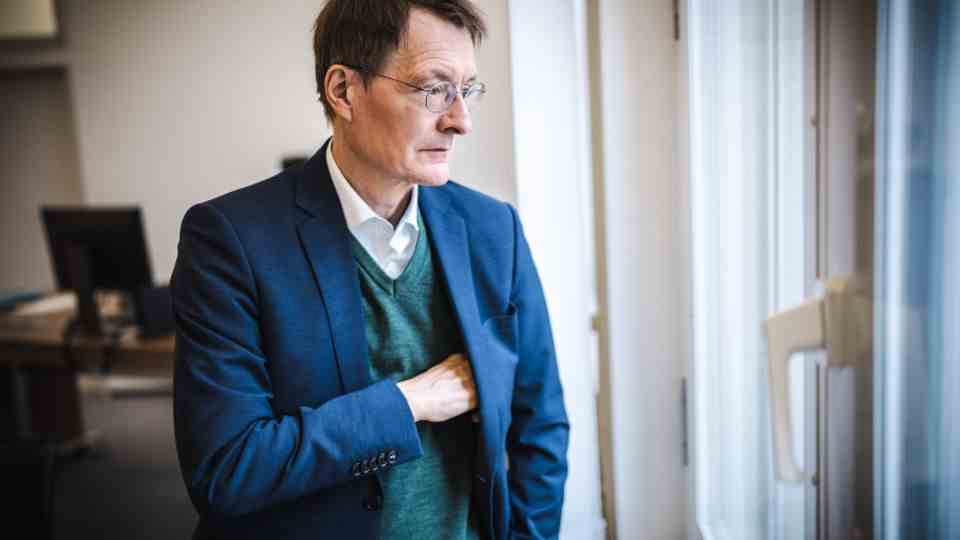Communication, masks, schools, data
Corona expert advice: This is how we have to prepare for autumn and winter
A temporary mask requirement “can be an effective and quick tool for infection control,” according to the Federal Government’s Coronavirus Expert Council. “It offers the highest level of self-protection and protection for others, especially indoors, with fewer individual limitations and can be used immediately.”
© Katrin Requadt / DPA / Picture Alliance
Even if it sometimes seems like it: The coronavirus pandemic is by no means over. The Federal Government’s Expert Council is already warning of the cold season – and recommends some well-known measures, but above all the creation of “sustainable structures”.
The Robert Koch Institute gave the seven-day incidence on Wednesday morning as 238.1 – a number that would have rung all the alarm bells just a few months ago. In the meantime it seems to have got used to it. Of the large number of infections, of the many deaths (last 145 in 24 hours) – but also of life in large parts without masks, distance rules and contact restrictions. But this Tuesday is also the day on which the Federal Government’s Corona Expert Council warns: The pandemic is not over yet, it could even pick up speed in autumn – and we should prepare.
Recommendations of the Coronavirus Expert Council
In Berlin, the committee presented its recommendations for the cold season. It is obviously also about learning from past mistakes, also in terms of communication. The Expert Council based its considerations on three scenarios: A new variant that is more contagious but less sickening than Omicron. A similar trending spread as currently. Or an unfavorable scenario in which a new virus variant has a higher transmission rate and at the same time causes more severe illness.
The committee sees the goals for the further course of the pandemic – no matter what the conditions are – that “all preventive, therapeutic and other measures (should) be aimed at the beginning of a new wave of infections in autumn in order to dampen them as early as possible”. , specifically the experts are concerned with:
- the Preventing serious illness and deathand with it the protection of people who are particularly at risk.
- the Avoiding overloading the healthcare system.
- the Avoiding the overload of critical infrastructure.
- the Avoidance of long-term consequences (“Long Covid”).
From this, the members of the council unanimously derived five decisive measures to prepare for the autumn and winter, these are expressly recommendations for politics:
- Data collection and digital real-time situation picture: The dynamics of infection, the severity of the disease, the burden on the health system and the vulnerability of certain population groups should be systematically and in detail recorded. A “very good database” is the “basic requirement” for good pandemic management, said Expert Council member Christian Karagiannidis at the press conference in Berlin.
- Data analysis and forecast: “Real-time pictures of the situation” are intended to provide a constant overview of the course of the pandemic and the burden on the health system – both for decision-makers and for the population.
- Behavior management and communication: Perhaps the greatest weakness in the course of the pandemic so far is to be eradicated. The Expert Council calls for the “establishment of an action- and user-oriented communication and behavior management strategy coordinated between the federal and state governments, which also includes an intensification of the vaccination campaign”. A traffic light system is also conceivable to inform the population.
- Prevention: The known infection protection measures (e.g. distance and masks) and above all vaccination should “remain the most important measures to keep infection waves as flat as possible”. However, according to the Expert Council, the quarantine could also be omitted in the future.
- Further measures: This includes, for example, storing personal protective equipment, training volunteers in hospitals, administering antiviral drugs at an early stage, reducing the bureaucracy of clinical studies or expanding vaccination services. “Securing social participation through school and daycare visits as well as sporting and cultural activities must continue to enjoy top priority,” says the 23-page paper by the expert council.
The members of the Federal Government’s Expert Council emphasized that they are not concerned with short-term measures, but rather with creating sustainable structures in order to be prepared for future epidemics.
The Federal Government’s Expert Council was launched in December 2021 by the traffic light coalition. It consists of 19 scientists from different disciplines. They should advise the federal government on questions relating to the Covid 19 pandemic and also consider non-medical issues. The panel’s recommendations are not binding on politicians. From July, the federal and state governments want to discuss which measures they want to take for autumn and winter.
Sources: The Federal Government’s Coronavirus Expert Council: “Pandemic preparation for autumn/winter 2022/23”, Robert Koch InstituteDPA news agency




